
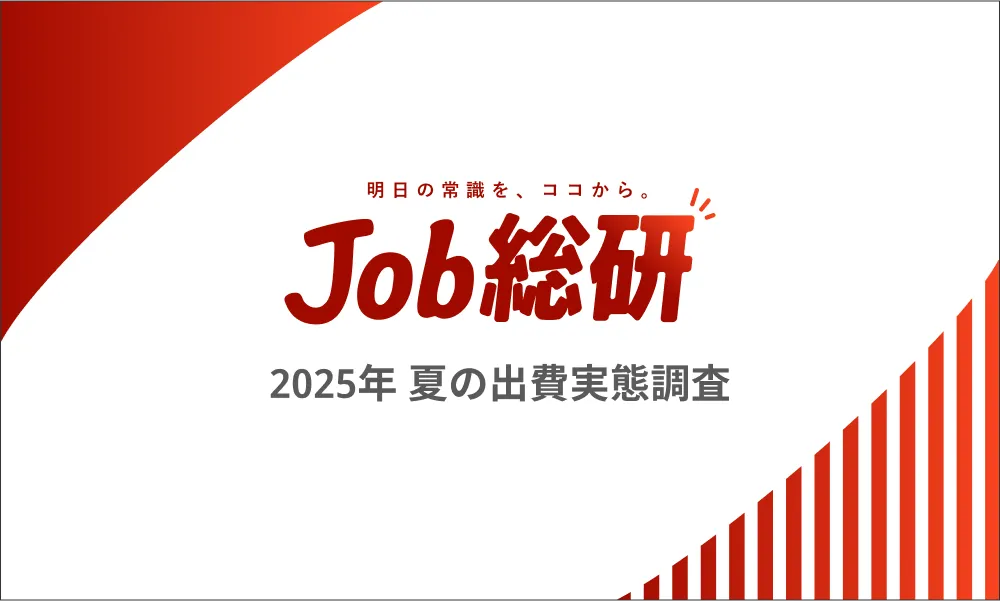
Survey Reveals Impact of Inflation and Heat on Summer Spending in 2025
Increasing Economic Pressure from Inflation and Heat
The summer of 2025 is poised to significantly impact consumers as rising temperatures meet soaring costs of living. A recent survey conducted by Job Research Institute, part of Persol Career, involved 544 working adults in Japan, examining their spending habits and plans for summer. The findings reveal that approximately 86% of respondents anticipate an increase in expenses compared to previous years, largely due to high electricity bills and increased food prices.
Key Findings of the Survey
The survey, conducted from June 4 to June 11, 2025, found that 79.2% of participants feel a tightened budget this summer. When asked about their leisure and outing plans, 65.4% indicated they would either change their plans or reduce their budget, with the average estimated cost for summer outings being around 50,000 yen.
The focus of spending has shifted. Many people are now prioritizing essential purchases while minimizing expenses related to leisure and non-essential items. For example, within the rising cost categories, 59.6% cited energy bills, 57.5% reported increases in food costs, and 39.5% noted general living expenses have surged due to inflation.
Strategies to Adapt to Rising Costs
Respondents also shared how inflation has altered their consumption patterns, with 53.1% opting for discounts and cheaper options, while 43.4% focused on points and coupons to lighten their financial load. Additionally, households are increasing the use of air conditioning, with many spending more time indoors to escape the oppressive heat, surging costs but changing habits around how and when to spend.
Comments from readers reflected diverse strategies; while some focus on comfort and are willing to spend on cooling systems to maintain productivity, others are tightening their belts by reducing food expenditures to compensate.
Planning for Summer Leisure
In examining leisure activities, the results indicated a shift towards more cost-conscious decisions. Many respondents indicated a willingness to adjust their plans, with 12.7% stating they wouldn’t engage in any outings at all. The predominant trends point towards a movement away from typical summer activities, highlighting an emerging pattern of
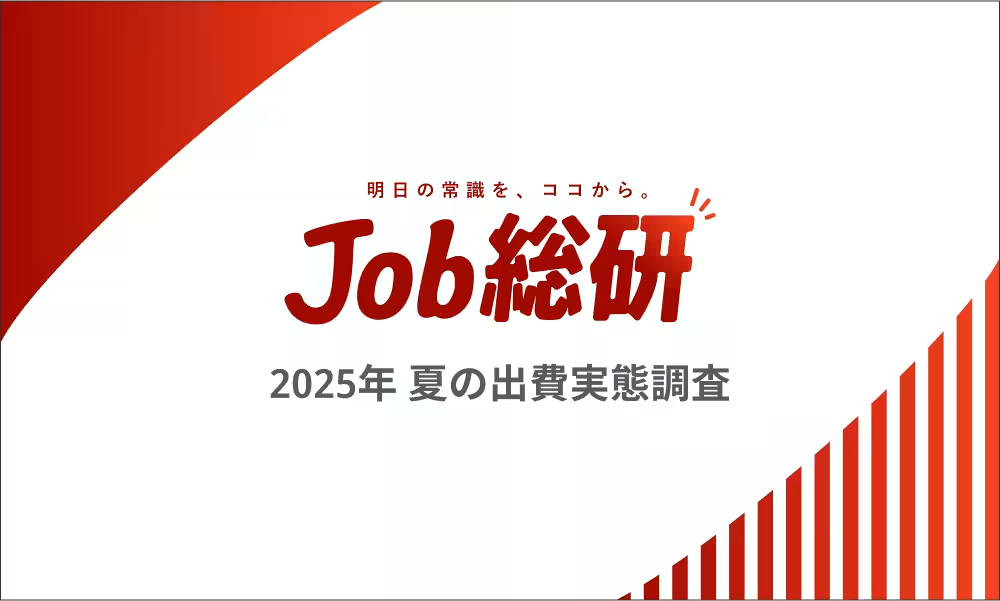
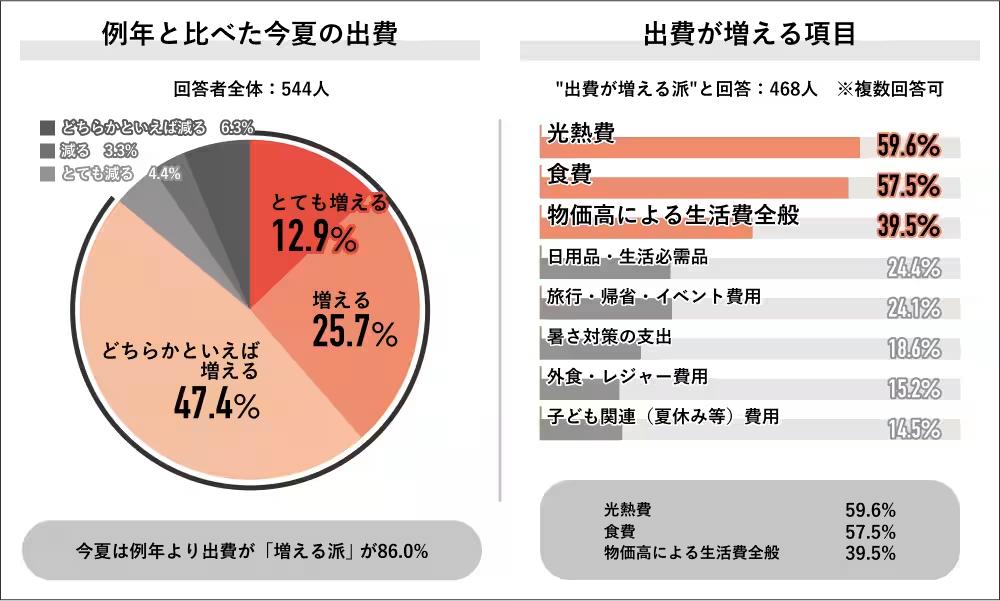
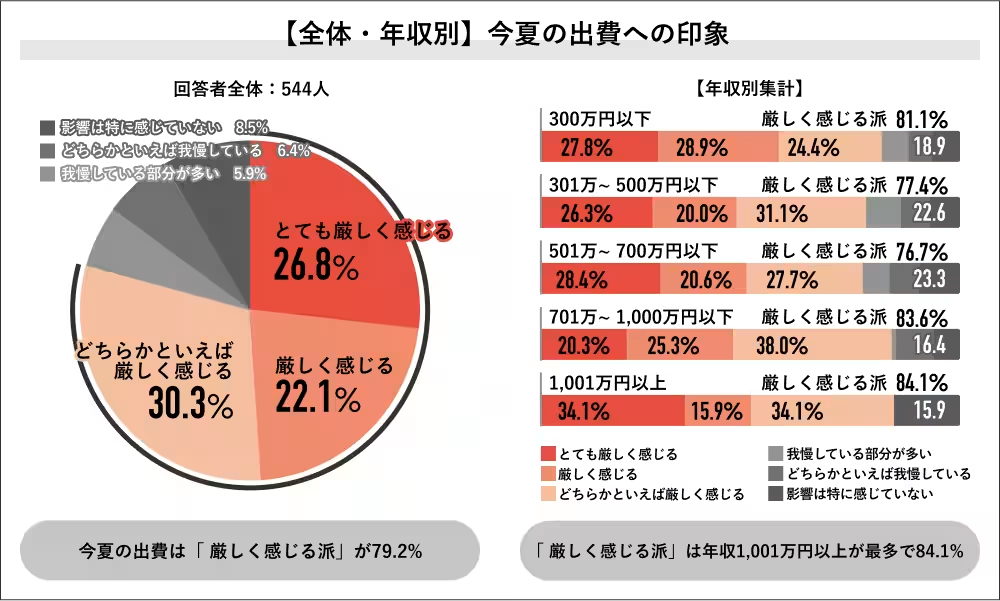
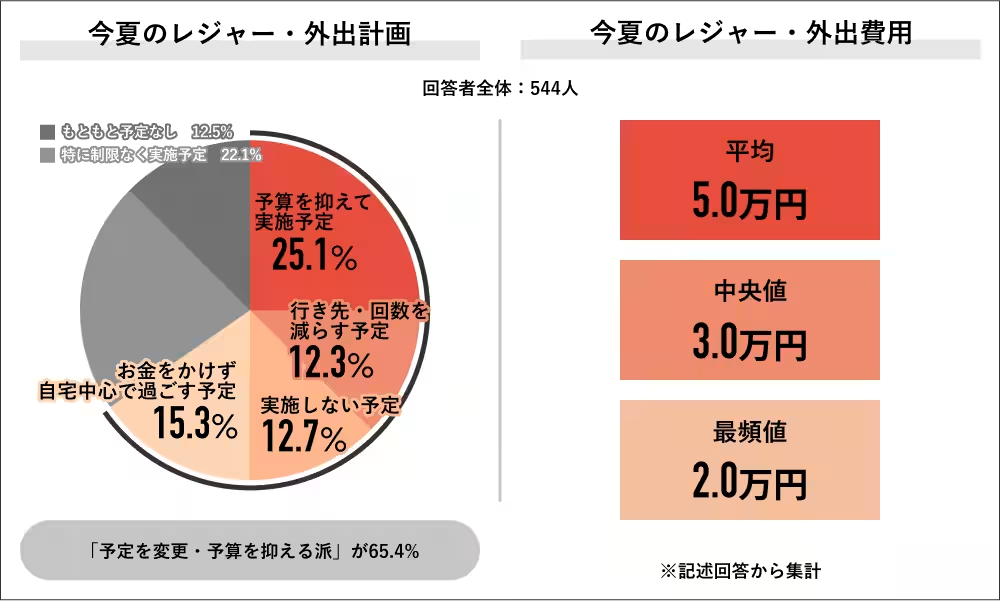
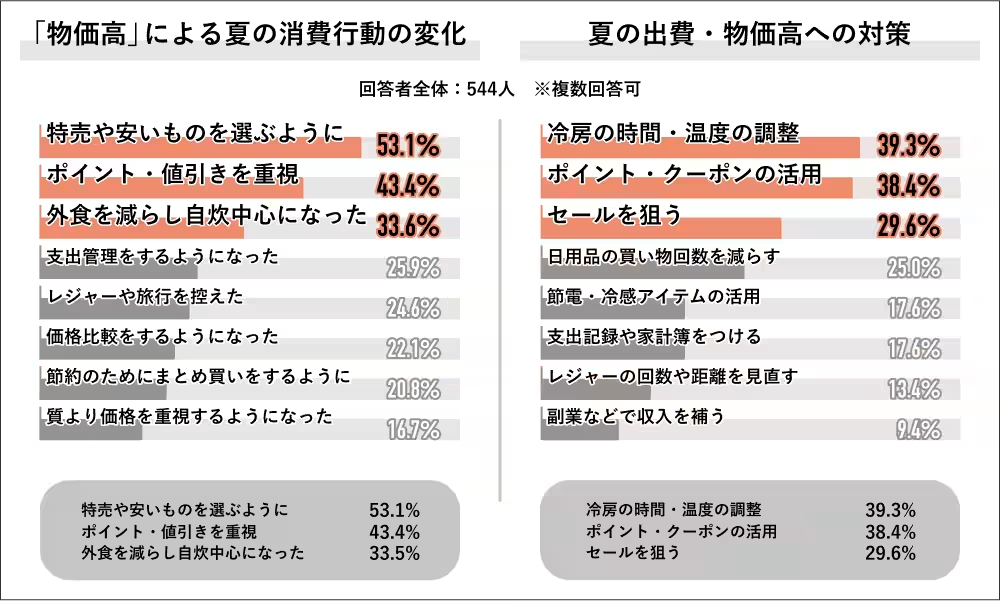
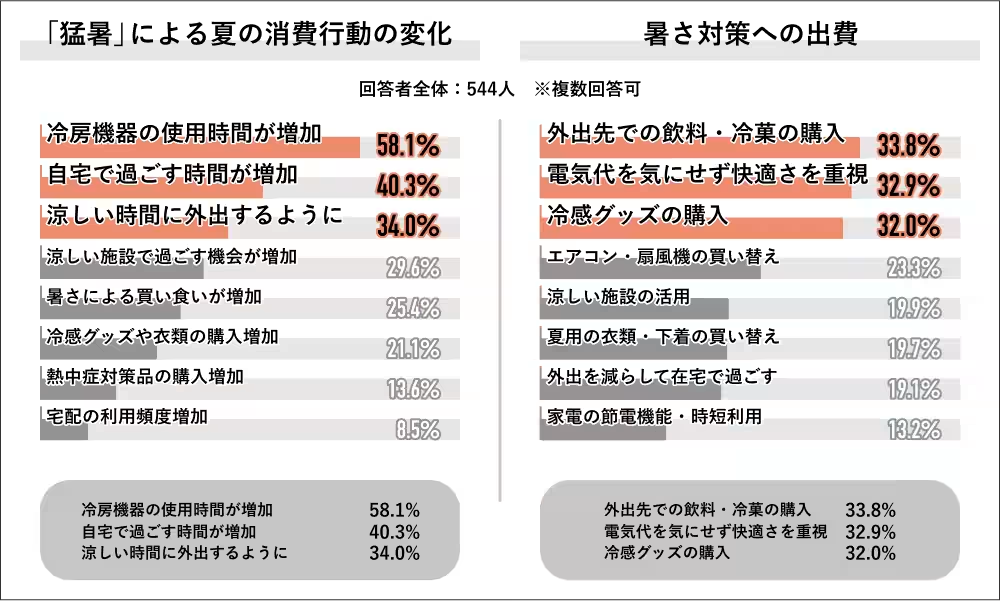

Topics Consumer Products & Retail)










【About Using Articles】
You can freely use the title and article content by linking to the page where the article is posted.
※ Images cannot be used.
【About Links】
Links are free to use.